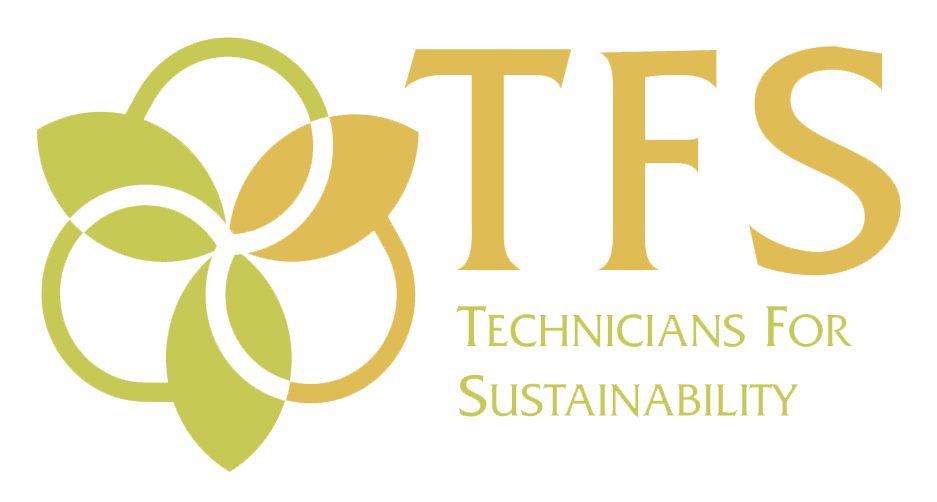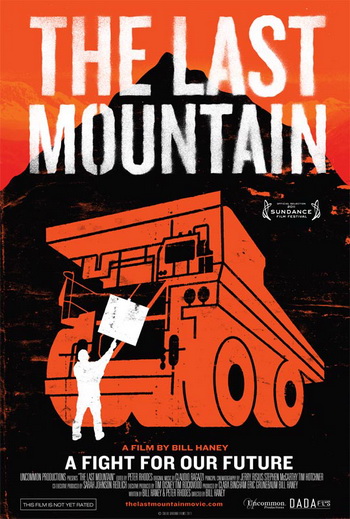Tucson, AZ- January 13, 2012: TriSports.com, Tucson’s very own triathlon, cycling, running and swimming gear shop, is now generating up to 100% of their electricity from solar power. The 128 kW solar electric (photovoltaic) system, designed and installed by Technicians for Sustainability, consists of two solar arrays mounted on custom built steel shade structures and a third array mounted on their roof. The panels will produce over 19,000 kWh per month which has the potential to cover all of the electricity the business uses. TriSports.com is the first triathlon shop to get even close to generating 100% of its electricity from solar power in the United States: they’re winning the race for sustainability.
The addition of this solar system at TriSports.com reaffirms the company’s dedication to sustainable practices. The 128 kW solar system saves 18,560 lbs of coal from being burned each month and 41,400 lbs of CO2 from entering the atmosphere. Perhaps most importantly, the TriSports.com solar array will save approximately 9,280 gal of water each month as compared to traditional electricity generation. This fact is often overlooked but is extremely significant in the Sonoran Desert where we live.
Sustainability has always been a goal of TriSports.com and solar is just the latest addition to a larger integration of sustainable practices. Seton Claggett, CEO of TriSports.com, shared this, "Three years ago I told our staff and our vendors that we would be on solar within the next 5 years, and here we are. This is a large investment for us but it is the right thing to do for our environment, our staff, our customers, our vendors and for our future generations.” TriSports.com has two large rainwater cisterns that collect and store up to 36,000 gallons of water at a time, which is then used to irrigate the landscaping. The company also made the switch to energy efficient lighting with their latest renovations, which significantly reduces their electricity consumption.
Not only was installing their solar system an environmentally-conscious decision, but it also makes sense from a financial standpoint. The TriSports.com system will offer a four and a half year payback period, a 10% rate of return, and for the first twenty years the solar system will save the company over $467,000.
Bruce Plenk, the City of Tucson’s Solar Coordinator, congratulates TriSports.com on their new solar system. "I am impressed with the foresight and leadership of Tucson businesses like TriSports.com who have chosen to be leaders in installing solar using their sunny rooftops as well as their parking areas to generate electricity, reduce our urban heat island and save their business money. This is a wonderful example that I hope other Tucson businesses will see and follow. Thanks to TriSports.com for showing the way to a solar future in our Solar America City!"
About TriSports.com
TriSports.com is an industry leader in triathlon, swim, bike and run retail, starting out of the home of Seton and Debbie Claggett in April 2000. Eleven years and two moves later, TriSports.com occupies 32,000 square feet of retail, warehouse and office space with 50+ employees. TriSports.com is more than just a retail presence, however; the company is also very involved with growing the sport through partnerships with races, clubs, teams and other endeavors, like being a founding member of Triathlon America, as well as being actively involved in the local Arizona community. TriSports.com also has a non-profit company, TriSports Racing, which puts on the Deuces Wild Triathlon Festival, certified as a silver-level green event through the Council for Responsible Sport, and is a founding member of their Community of Practice, an effort to ensure the future of sports in a sustainable way. TriSports.com has been recognized as one of Outside Magazine’s Best Places to Work (2009 & 2010); by Triathlete Magazine as one of Triathlete’s Best Places to Work (2010); as one of the top 100 bike shops in the US by the National Bicycle Dealers Association (2010 & 2011); as a top 10 triathlon store by Triathlon America (2011); by Comerica Bank as one of Arizona’s 50 Companies to Watch (October 2008); as one of BizAZ’s Top 35 Entrepreneurs Under 35 (June 2008); by Wells Fargo with their Copper Cactus Award for Business Growth (October 2005); and as Arizona’s Greenest Workplace by Mrs. Green’s World (October 2011). Learn more about TriSports.com online at www.TriSports.com/info.html.
About Technicians For Sustainability
Technicians For Sustainability (TFS) is a locally owned, mission-driven business, committed to walking their talk. They provide businesses, public institutions, and residential homeowners with high quality, clean, renewable energy systems, helping to translate environmental values into practical reality. The company employs proven technologies to meet customers' specific needs, including solar electricity and solar hot water heating. TFS has installed over 6 megawatts of solar power in southern Arizona. For more information about Technicians For Sustainability visit tfssolar.com.
# # #





